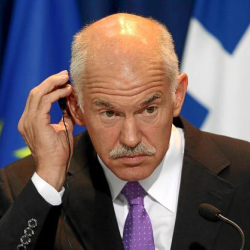
The Greek Prime Minister Giorgio Papandreou has lost control. Street protests against the austerity plan have gotten worse. And tonight he could make a confident move and attempt to get support for his government and the adjustments that he will have to approve at the end of June.
If his emotion is lacking, the EU has agreed on the following bailout: a 12 million euro loan. Also, Athens might approve a 28 million euro savings plan. The scenario looks bad. At first, Papandreou took on too much against the opposition, blaming it for the cutbacks.
The public is more aware of the necessity to make cuts each day, but the problem is that citizens see the entire political class as part of the crisis. Further, nobody wants to endure his part of the bailout by reaching for his pockets. For this reason, the question now is: what will Greece stand up to when asking for a bailout? The backup plan must be redesigned in order to stabilize growth. And now doubts about Italy might intensify are coming together.
It is true that the transalpines have export companies, they have not endured a real estate bubble and families are not indebted. But its state is heavy and GDP is stagnant. The agreement between Merkel and Sarkozy calmed markets only because the final question about how much this is going to cost contributors and private creditors has been postponed. The crossroads is clear: a break in the Euro or a bigger union? In fits and starts, we sidle toward the second.
Edited in English by Brandon Dyches and Jose L. De Haro (joseluisdeharo@eleconomista.es)